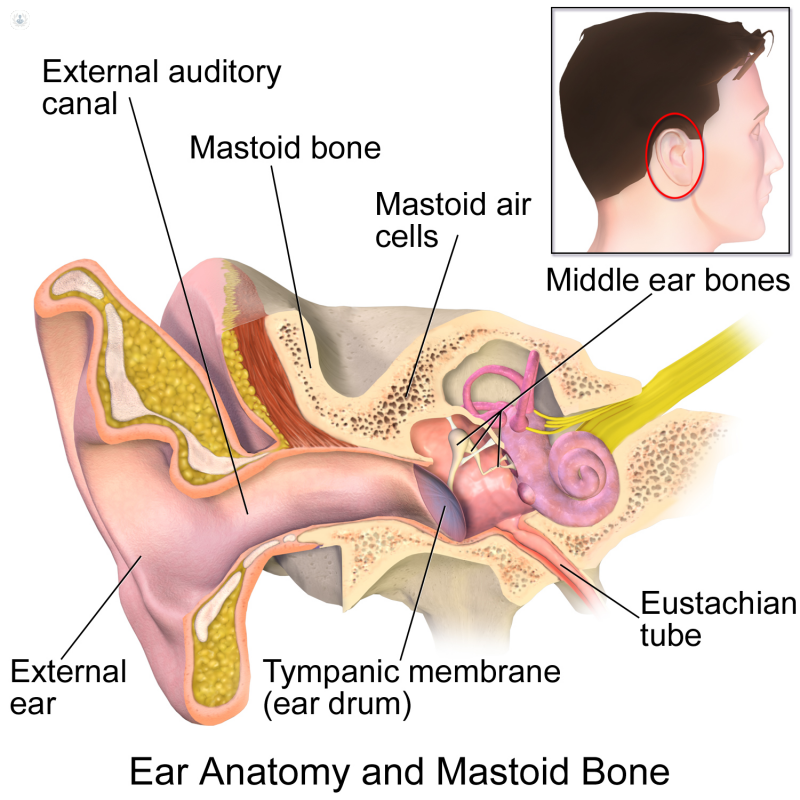


What is mastoiditis?
Mastoiditis is an infection of the mastoid bone, a portion of the temporal bone of the skull located behind the ear. The mastoid bone is full of tine air-filled spaces called mastoid cells. Mastoiditis occurs if the mastoid cells become infected or inflamed, often following a persistent middle ear infection (otitis media). The condition can be either acute or chronic. The infection is more common in children.
What are the symptoms of mastoiditis?
The symptoms of mastoiditis include:
- Redness and swelling behind the ear or of the ear lobe
- Tenderness/pain of the mastoid bone
- Fever
- Tiredness and irritability
- Discharge from the ear
- Headache
- Hearing loss in the affected ear
The symptoms are often similar to those of otitis media, along with swelling behind the ear. Complications of mastoiditis can include nausea, vomiting, brain abscesses and facial paralysis.
How is mastoiditis diagnosed?
Your doctor will examine your ear with an otoscope to see if there’s any oedema or irritation. If your GP suspects mastoiditis, they may refer you to an ENT specialist, who may order further tests, such as:
- Complete blood count (CBC), to see where your leukocyte level stands
- Ear culture
- Computed tomography (CT) scan
- X-rays
What causes mastoiditis?
Middle ear infections are the main cause of mastoiditis. When the infection spreads to the back of the ear and to the temporal bone, honeycomb structure of the mastoid bone can become infected and inflamed. The most common bacteria causing this infection are pneumococcus, pseudomonas aeruginosa, haemophilus influenzae and group A streptococcus (GAS). Other diseases which may lead to mastoiditis are meningitis, sinus thrombosis, cerebral abscess and facial nerve palsy.
Cholesteatoma, an abnormal build-up of skin cells inside the ear which can prevent proper drainage, is another possible cause.
How can mastoiditis be prevented?
The most effective way of preventing mastoiditis is to timely identify and treat infections of the ears.
How is mastoiditis treated?
You will have to start taking antibiotics to fight the bacteria causing this infection. To reduce the symptoms, you can take NSAIDs or painkillers. Antipyretic treatment can help you with the symptoms of fever. If the disease isn’t going away with any of these treatment, you may have to undergo a small surgery to drain away any potential abscess there may be in the affected area.
Which doctor should I talk to?
You should see an ear, nose and throat (ENT) specialist to treat mastoiditis. After doing some tests in order to formulate an accurate diagnosis, the doctor will identify the cause of the infection and suggest the best treatment for you.
